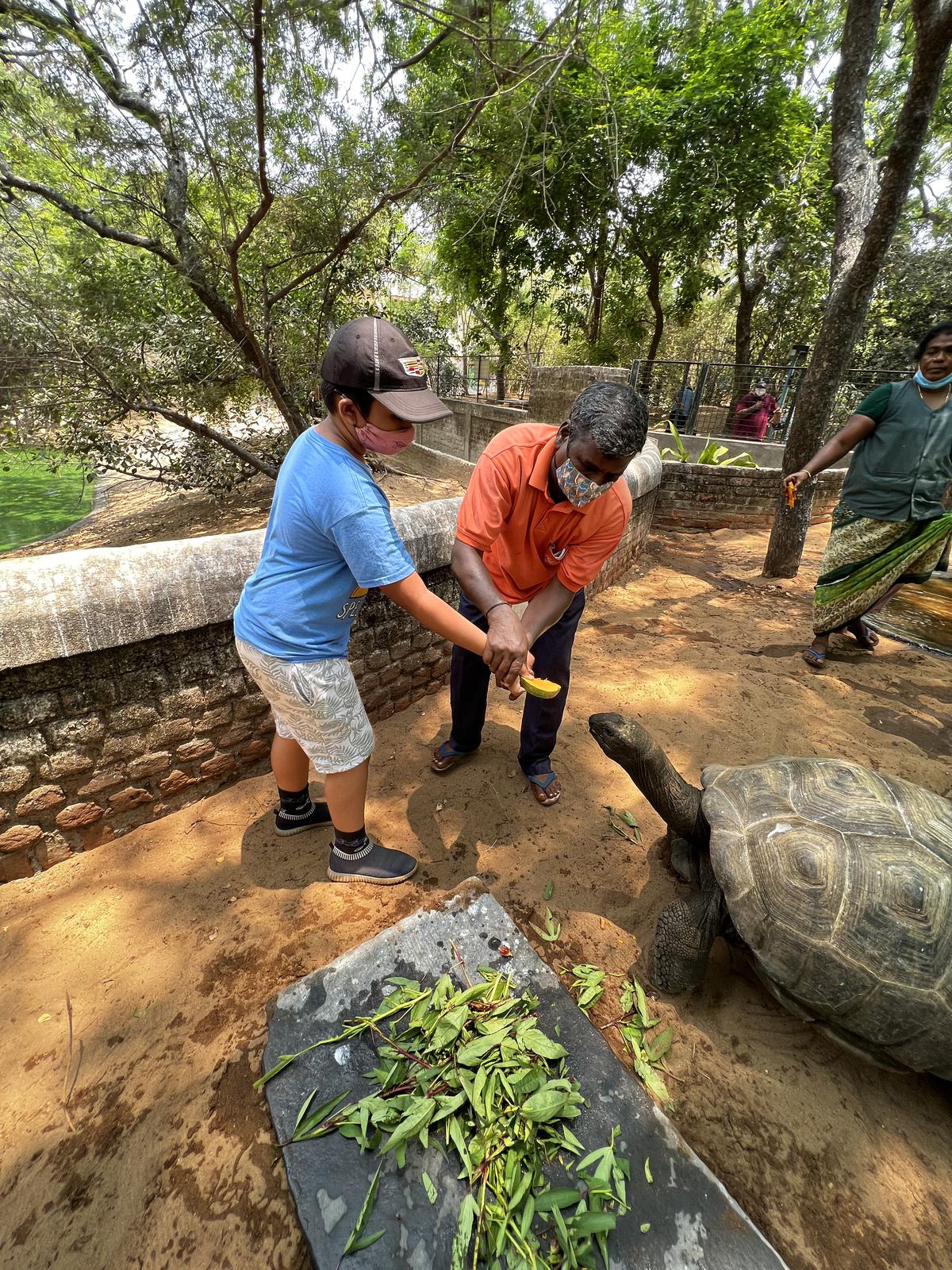
Crocodiles go to school: Madras Crocodile Bank launches virtual education programmes
The Hindu
Meet reptiles in your drawing room via Crocodile Bank’s virtual programming
If you like snakes, or muggers, chances are you have visited The Madras Crocodile Bank Trust (MCBT) Centre for Herpetology. While the crocodile bank on East Coast Road houses over 35 species of reptiles and amphibians and has given families and tourists many memorable moments since 1976, the team is now stepping into a hybrid educational programme, to take its reptiles into drawing rooms and classrooms across the country. The pandemic and ensuing lockdown meant no visitors at the facility for close to two years, strained resources and reduced engagement with its crocodile curious audience.
Zai Whitaker, managing trustee at the MCBT says the pandemic forced a pivot that is here to stay. “We definitely want to move forward in this direction. Using a virtual route added a whole new dimension to crocodile bank and now you can visit our facility and attend programmes from anywhere. Not just schools and colleges, we have PhD and MSc students and scientists interested in the work we do, and log in to sessions,” she says.
The Chhatrapati Shivaji Maharaj Vastu Sangrahalaya, formerly The Prince of Wales Museum, in Mumbai recently partnered with the Madras Crocodile Bank for a virtual programme spanning four sessions. Steffi John, education officer at MCBT elaborates, “The first day was a session on reptile ambassadors, the second, focussed on feeding and behaviour 101, awareness on snakebite mitigation on the third and the final session focussed on the myths around snakes and a visit to our ‘Big Four’ venomous snakes — spectacled cobra , saw-scaled viper , Russell’s viper and common krait .”
While a hybrid model is “here to stay,” Steffi observes that virtual sessions offer certain benefits that a real life encounter cannot. “With in person visits you can’t get as close to the reptiles as you can when you zoom in during a virtual programme.” .
Partnerships with museums across the country have helped the MCBT increase audience engagement, and its in person programmes have diversified to offer, amongst school field trips, a ‘Be a Zookeeper’ initiative with educative and interactive sessions with animal ambassadors, birthday parties, wherein families can bring up to 20 guests, and their own refreshments, and take part in sessions with one species of baby crocodiles, a turtle, tortoise and a few snakes and lizards.
Research into noise pollution and how it impacts reptiles in particular and fauna in general is an ongoing endeavour at MCBT. Zai explains, “We have an ongoing study on the effects of noise on crocodile behaviour, and we have teams from across the globe pitching in. We have equipment to monitor the noise and its effects on cortisol levels in the reptiles.” Outreach programmes conducted at the Vandanamalli village have been a success so far, and “we have been talking to resorts on the ECR and they have responded really well”.
While Zoom sessions and research has kept the staff on its toes this past year, 15 virtual reality headsets are now taking the crocodile bank experience to the next level. Wild Immersion, a French company has provided its programming and videos with the headsets. Steffi, explains, “We worked on a proposal through 2021 to introduce virtual reality experiences for our visitors. While we currently have programming from Wild Immersion on the VR sets, we are looking forward to creating completely local material, in association with a team from the Indian Institute of Technology ( IIT), Madras, so that by 2023 we can offer an original film by The Madras Crocodile Bank.”













